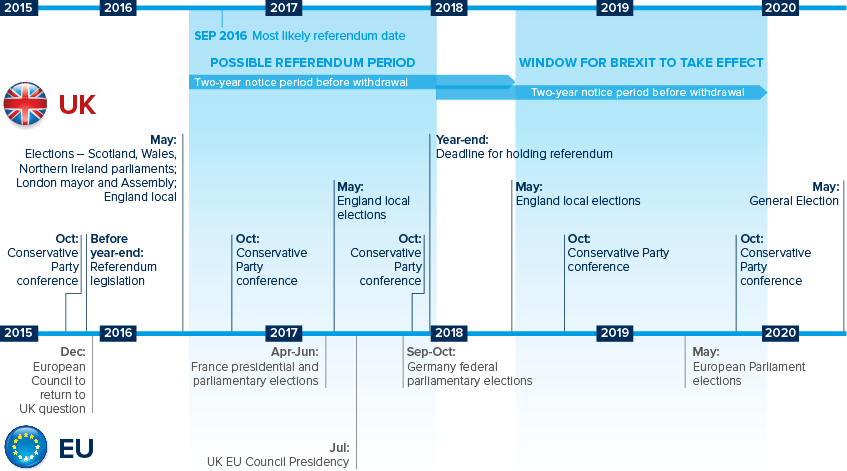Cameron likely to seek EU membership poll in 2016
Confident of an 'in' vote, Prime Minister David Cameron will prioritise party interests in 'Brexit' referendum planning

Source: Oxford Analytica
Outlook
Officially, the EU membership referendum could be held any time between May 6, 2016 and end-2017, except May 4, 2017 (English local elections). A September 7 amendment by eurosceptic MPs obliges the government to settle final arrangements for the campaign role of public officials and resources at least four months before the vote. Late 2016 - specifically, September - is the most likely referendum date.
This would avoid the July 2016 NATO summit and 2017 French and German elections, while seeing the vote held relatively early. It would limit uncertainty, and give the Conservative Party longer before the May 2020 general election to heal its inevitable split and - as Cameron will not stand again - for a new leader to become established.
Holding the referendum before the self-imposed deadline would involve a less ambitious EU renegotiation. This would risk deepening Conservative divisions, most damagingly at party conferences. However, given the French and German elections, a lengthier process seems unlikely to secure better terms; and the content of the renegotiation will be less important than its presentation in swaying voters.
Impacts
- Another summer of migrant inflows could weigh against a September date.
- An 'in' vote remains the likely outcome, but contingency and volatility will be high.
- After an 'out' vote, the government would likely give notice quickly of its intention to leave the EU.
- The required two-year notice period would see the greatest uncertainty about the future regulatory and trade environment.
- Fully unravelling the United Kingdom from EU membership would take much longer than two years.